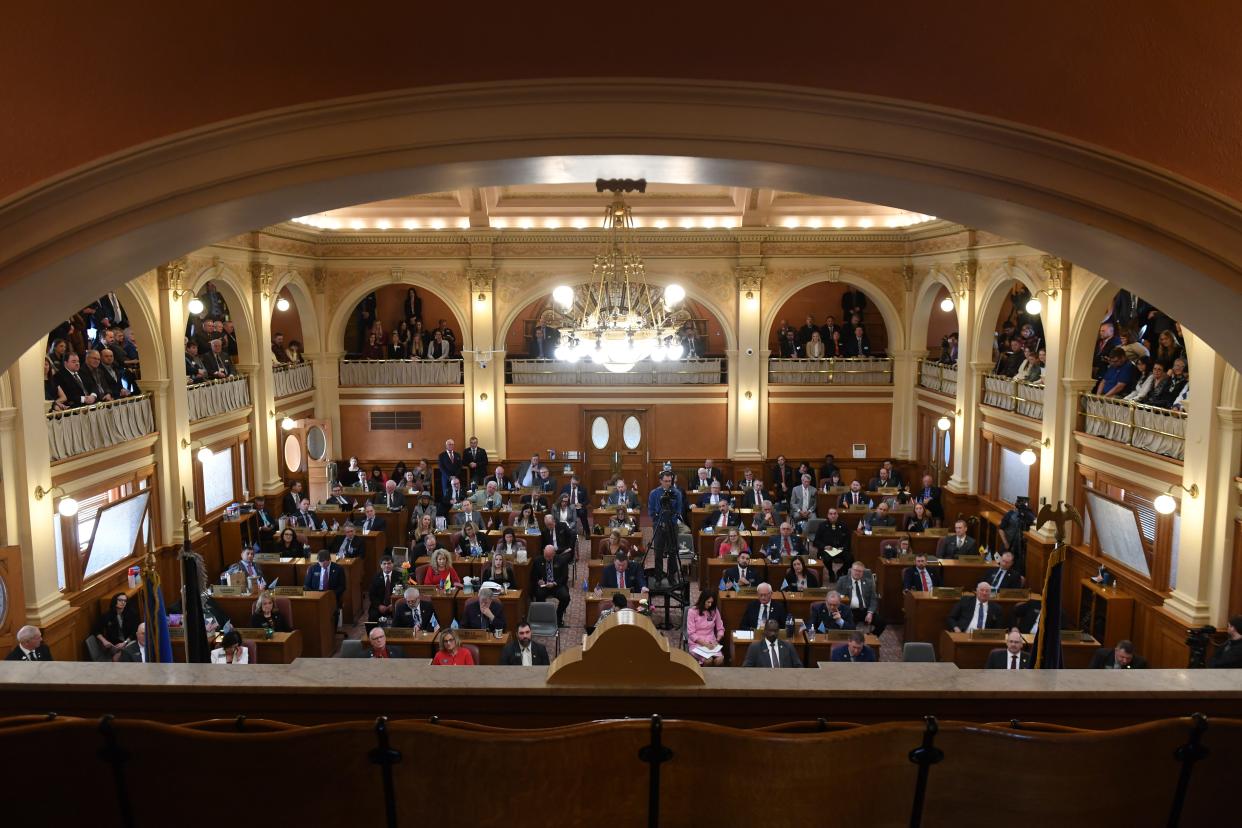South Dakota Legislature passes bill aiming to increase teacher salaries, compensation

PIERRE — School districts may soon be required to raise average teacher compensation each year by a rate nearly equal to the increase in state education funding.
The Senate and House of Representatives sent a bill to the governor Wednesday that would require school districts raise average teacher compensation – which includes salary and benefits – by 97% of the increase approved by the Legislature and governor each year. That requirement would begin July 1, the beginning of fiscal year 2025.
The three-point reduction from the previously proposed 100% is intended to allow flexibility for school districts to spend that money on needs outside teacher pay, such as programming, transportation or other staff salary increases.
“Right now we are 49th in the nation for average teacher salaries. This is unacceptable,” Sen. Sydney Davis, R-Burbank, said on the Senate floor. “We need real accountability. It’s time to keep our promise to teachers.
A group of legislators met with state officials, lobbyists, superintendents and other stakeholders throughout the 99th legislative session, which ends Thursday, to work toward the final version of the bill.
The legislation would also set a statewide minimum teacher salary of $45,000, beginning July 1, 2026. That minimum standard would increase each year by a percentage equal to the annual increase in state education funding approved by the Legislature and governor. The bill does not include any additional money for schools beyond the regular, annual increases in state funding.
School districts that fail to meet the bill’s requirements could risk an accreditation review or suffer a $500-per-teacher deduction in state education funding. But they could also request a waiver and work with the state School Finance Accountability Board to come into compliance.
The bill passed 64-5 in the House and 25-9 in the Senate.
Opponents are skeptical it’ll provide enough flexibility for school districts and say it will have unintended consequences due to declining enrollment in public schools across the state, especially rural areas.
“As time moves on, it’s going to become a little more restrictive,” Sen. Kyle Schoenfish, R-Scotland, told South Dakota Searchlight after the bill was amended and passed out of a conference committee Tuesday. Schoenfish voted against the bill on the Senate floor on Wednesday.
Senate President Pro Tempore Lee Schoenbeck, R-Watertown, said the Legislature will continue working on the mechanics of raising teacher pay in future sessions. Schoenbeck is not running for reelection.
“I don’t know if this is the right answer or the perfect answer. It is an answer,” Schoenbeck said during the Republican leadership conference Wednesday morning. “The Legislature is going to be back here every year. If this misses and it takes too many waivers or it’s too hard for rural schools, we’re going to have to look at it because we have to be accountable for all the schools, from the rural ones to the large ones.”
Davis said the state Department of Education plans to work with districts to navigate challenges or access waivers.
Lawmakers plan to increase state funding to public education by 4% this session. House Majority Leader Will Mortenson, R-Fort Pierre, said the Legislature will work to “give as many dollars as we can to education” in future sessions.
“We’re not trying to create an undue burden,” he said. “We are trying to create a real expectation.”
The bill now heads to Gov. Kristi Noem’s desk. Noem has spoken repeatedly in the last few months about her desire for action on teacher pay.
This article originally appeared on Sioux Falls Argus Leader: Legislature passes bill aiming to increase teacher salaries, compensation

